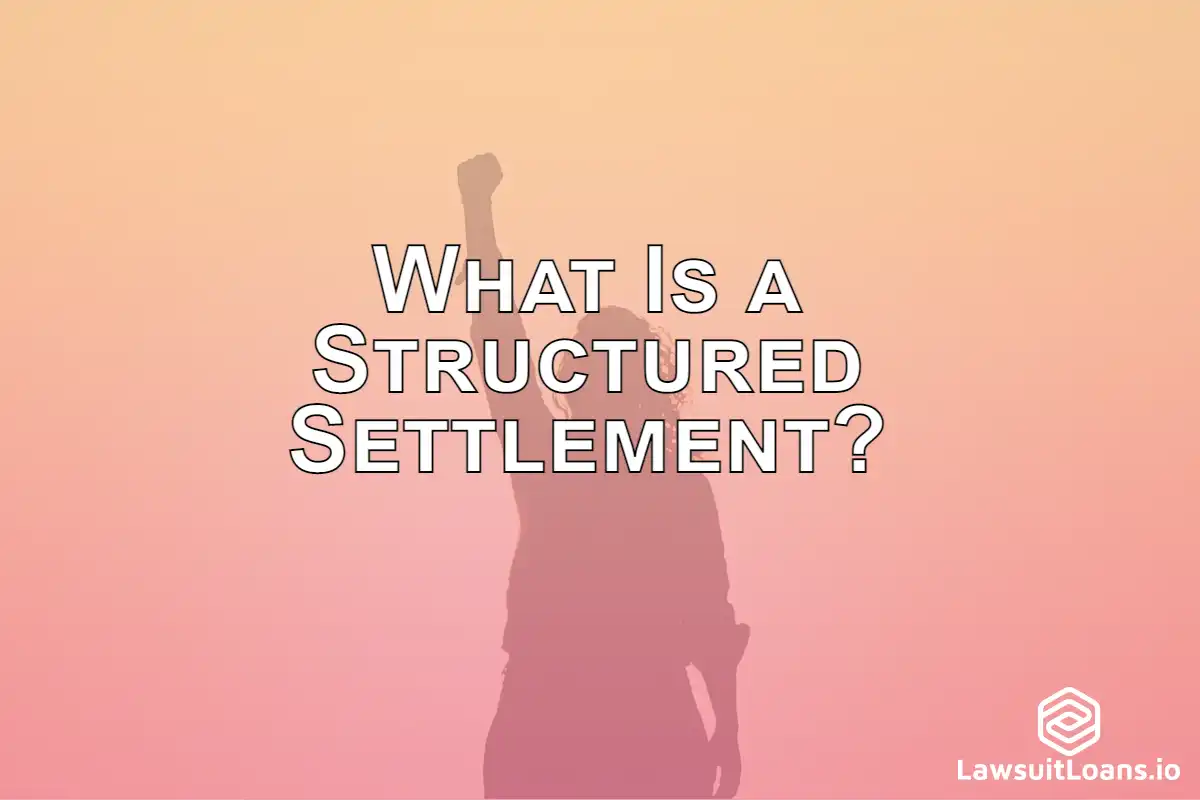What Is a Structured Settlement?
A structured settlement is an alternative to a lump sum payment for people who have suffered an injury.




What Is a Structured Settlement?
Want a reliable and secure way to receive payments after a settlement? If so, you might have come across the term “structured settlement,” and you’re probably wondering what it is. In this blog post, we’ll be discussing structured settlements, how they work, and the benefits they have for you.
Apply NowWhat Is a Structured Settlement?
A structured settlement is a legal agreement between two parties. Usually, one party is a plaintiff who has won a lawsuit, and the other is the defendant who is being sued. This agreement allows the plaintiff to receive tax-free payments over a period of time, rather than a lump sum payment. Structured settlements usually involve a combination of periodic payments such as annuities or other investment vehicles.
Get up to $500,000 With Rates as Low as 2.5% Simple, Monthly
How Do Structured Settlements Work?
When a structured settlement is established, the defendant will set up an annuity with an insurance company to provide the plaintiff with payments over time. The terms of the agreement are negotiated between the two parties. They will usually include details such as the amount, frequency, and duration of payments.
The plaintiff will then receive a series of payments from the insurance company based on the terms of the agreement. This settlement money can be made in different ways, such as monthly, quarterly, or annually. Depending on the agreement, the plaintiff may receive these payments for a specific time or until they pass away.
Additionally, you can get a pre-settlement loan to tide you over until your structured settlement becomes available.
Payout Options for Structured Settlements
There are several different payment options available for structured settlements. Depending on your needs and situation, you may opt to receive periodic payments or a lump sum. Here are the two main payout options:
- Lump Sum Payment – This is a one-time payment that pays out the total amount of the settlement. It is often the best option for those needing immediate funds access. This is the most common option for smaller settlements.
- Periodic Payments – This is a commonly used option for structured settlements. It involves receiving regular payments over a set period, such as monthly or annually. This is an excellent option for those who want an installment settlement.
Going further with periodic payments, you can customize them to meet your needs. For example, you can receive payments for a certain amount of time or until you pass away. Or you can opt for a fixed-period payment schedule, where the payments stay the same throughout your lifetime. Or you can choose to receive payments of varying amounts, such as increasing or decreasing payments over time.
Get Started
Apply today and get funds in as little as 24 hours!
Lump Sum vs. Structured Settlements
When deciding between a lump sum or structured settlement, it’s essential to consider your needs and goals. A lump sum payment may be the best option if you’re looking for immediate access to funds. However, consider a structured settlement if you want to have regular payments over time or grow your money through investment options. Getting advice from an attorney or financial advisor who can help you determine which option is best for you is essential.
A simple way to look at it is this: a lump sum payment gives you all of the money upfront, while a structured settlement gives you money over months and years. A lump sum is riskier since you can access all of the money at once and spend it quickly or make bad investments. On the other hand, structured settlements provide stability and security since you get a predictable income stream each month or year and don’t have to worry about managing your investments.
Pros and Cons of Structured Settlements
Structured settlements can provide much-needed financial security for those who have suffered a significant injury or loss. You can avoid the risks of receiving a large lump sum settlement by receiving regular payments over time. And with a customized payment plan, you can choose a payment structure that meets your needs and goals.
For example, you can opt for payments that increase/decrease over time or choose a fixed-period payment plan where the payments stay the same. You could also receive payments for a certain amount of time or until you pass away.
However, there are some drawbacks as well. Structured settlements come with periodic payments that may not cover your future expenses or provide you with the financial security you need.
Additionally, once the settlement is in place, you cannot change it and don’t have access to the total amount of money. You can only access the money once it’s paid out, even in an emergency or with unexpected medical expenses.
Get $500 – $500,000 in as Little as a Single Business Day!
We understand that if you’re applying for funding with us, you needed the funding yesterday. With your attorney’s cooperation, we can provide funding as soon as the same business day.
Taxation of Structured Settlements
Due to the Periodic Payment Settlement Act of 1982, structured settlement payments are typically tax-free. This means you won’t have to pay taxes on the income you receive from your settlement. However, there are certain circumstances where you may be required to pay taxes on a structured settlement.
For example, taxes may be applicable in cases regarding emotional distress or workers’ compensation. Additionally, punitive damages, designed to punish the wrongdoer rather than assist the victim, are usually subject to taxes. It’s essential to consult with a tax professional or attorney to determine if you’ll need to pay taxes on your structured settlement.